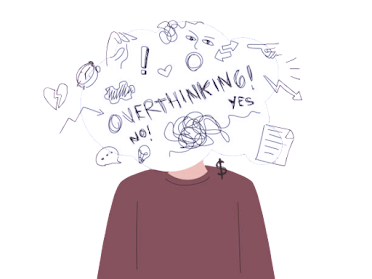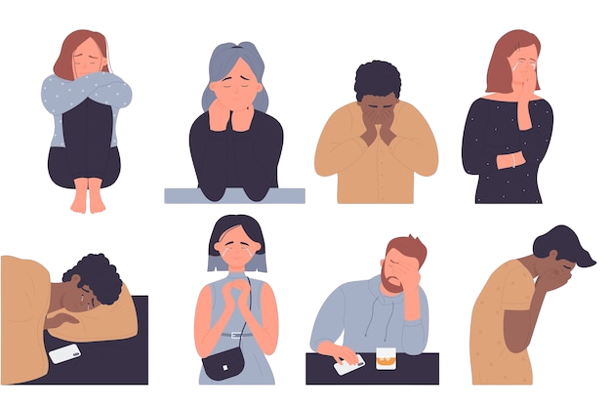Search This Blog
In this captivating blog, join me on a reflective journey as I share the incredible story of how my life underwent a profound transformation in the span of just one year. From personal growth and unexpected opportunities to challenges conquered and lessons learned. Through ups and downs, triumphs and setbacks, Get ready to discover the tangible steps and intangible experiences that altered the course of my life in the most astonishing ways.
Featured
- Get link
- X
- Other Apps
The Paralysis of Analysis: Navigating the Perils of Overthinking

Introduction

In the modern world, where information flows incessantly and choices abound, the phenomenon of overthinking has become an all-too-familiar aspect of daily life. Overthinking, often called the "paralysis of analysis," is the process of dwelling excessively on a thought or decision, causing distress and inaction. While pondering matters deeply can be beneficial, excessive rumination can lead to anxiety, self-doubt, and missed opportunities. In this blog, we'll explore the causes, consequences, and strategies to overcome the labyrinth of overthinking.
The Causes of Overthinking
The Consequences of Overthinking

Diminished Productivity: Excessive thinking consumes mental energy, leaving little room for creative and productive thinking.
Impact on Relationships: Overthinking can strain relationships as we become preoccupied with our thoughts, making it challenging to fully engage in conversations or activities.
Self-Doubt: The constant second-guessing that accompanies overthinking can erode self-confidence and self-esteem.
Strategies to Overcome Overthinking
Mindfulness and Meditation: Cultivate mindfulness to stay present and reduce the tendency to excessively dwell on past or future thoughts.
Set Time Limits: Allocate a specific amount of time to think about a particular issue or decision, and once the time is up, commit to a course of action.
Challenge Negative Thoughts: Actively challenge the negative narratives that fuel overthinking by seeking evidence for and against them.
Focus on Solutions: Shift your focus from the problem itself to potential solutions. Channel your energy into finding ways to address the issue rather than endlessly analyzing it.
Physical Activity: Engage in regular physical activity to release pent-up energy and reduce stress, which can help alleviate overthinking tendencies.
Journaling: Write down your thoughts and concerns, organizing them on paper. This practice can help provide clarity and distance from overwhelming emotions.
Seek Support: Discuss your thoughts with a trusted friend, family member, or therapist. Sometimes, an outside perspective can provide valuable insights and alleviate the burden of overthinking.

Conclusion
Overthinking is a formidable foe that can hinder personal growth, stifle creativity, and impede decision-making. Recognizing the underlying causes and consequences is the first step towards regaining control over your thought processes. By implementing mindfulness, challenging negative thought patterns, and seeking support, you can break free from the shackles of overthinking and embark on a path of greater mental clarity, resilience, and well-being. Remember, life's beauty lies in its spontaneity and unpredictability – embracing the moment and making confident choices can lead to a more fulfilling journey.
- Get link
- X
- Other Apps
Popular Posts
Embracing Love, Navigating Life, and Staying Strong: A Guide to Thriving
- Get link
- X
- Other Apps
Dream Big: Unleashing the Power of Aspiration
- Get link
- X
- Other Apps


Comments
Post a Comment